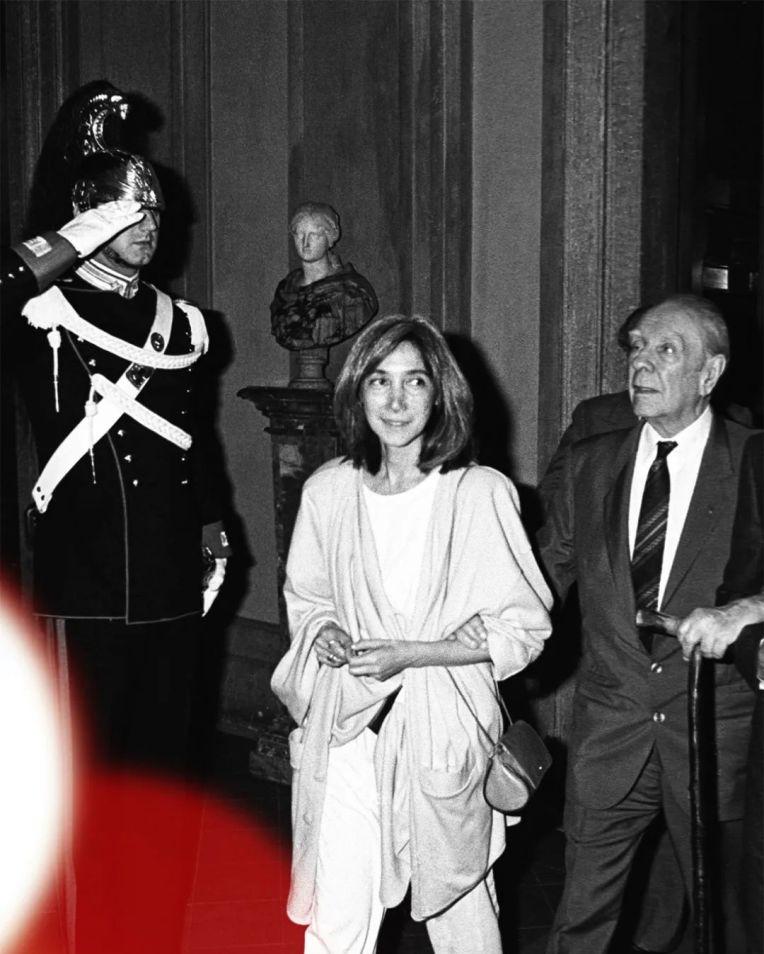
∞ Final Dialogue I., 2018
In Dialogo I
Borges × Ferrari translated by Chen Dongbiao
New Classic Culture | Nova Press
There is no need to deliberately be an Argentinian
Excerpt from "About Riccardo Guiraldez"
About Ricardo Güiraldes
Ferrari: It's interesting to hear you talk about Guiraldez's dabbles in topics like theosophy and mysticism.
Borges: He was interested in theology.
Ferrari: Because, in a sense, he finally applied it to our landscapes.
Borges: Exactly.
Ferrari: You see, it was clearly applied in his book The Path (1932). So I spoke earlier about the dimensions he gave to the Pampas, and he probably applied this knowledge of theosophy and mysticism to our landscapes.
Borges: Yes, that's a reasonable explanation. Now I know he's interested in this, there's a chapter in Don Segundo Sombura, and I'm sure he told me that it's about Don Segundo exorcising evil spirits for a person who is possessed by a ghost, right?
He added, "Well, I can't go any further than the insignificant possibility of Don Segundo. But I believe in the possession of evil spirits. He was convinced of it. Of course, he was not Catholic, but he was very interested in mystique, especially in India.
Well, one proof of this is his widow, Adrina del Caril 18, who once emigrated to Bangladesh and lived there for ten years and adopted a boy brought from India.
Ferrari: In another of his books, you probably remember, a book written when he was young: Raucho (1917), he...
Borges: Well, Raoux is a bit of an autobiographical nature, I believe, isn't it?
Ferrari: Yes, there's a confrontation in it —probably like this —between American and European fashion: Rauccio discovered Europe, and then rediscovered — but after the discovery of Europe — its own continent.
Borges: Yes, "crucified by peace," I believe the book ends with that, right?
Ferrari: In His Eternal Homeland".
Borges: "In His Eternal Homeland", yes, I remember the book, yes. That being said, Guéraldez insisted on using, in a somewhat radical way, in a Gallic style.
Some places are even quite ugly: for example, "hatching" 19 I believe is not too beautiful. He used them, but he did it almost as a challenge because he didn't want to be like what he said — he and his wife both said — "Ah, so-and-so is a Galician 20". These words are used in writers like Oyola 21 or Riccardo Rojas 22; that is, they use Spanish words, and he does not want to use them.
Although, of course, they don't, uh, technically speaking, a South American word. But I believe that if an Argentine wrote spontaneously, he would not have written like a Spaniard, because... We're so far away from them, uh, there's no need to deliberately be Argentines, because it was meant to be, wasn't it?
If one deliberately does it—as I first wanted to do—that kind of contrivance will immediately become apparent.
Ferrari: What matters should be nature.
Borges: I believe so. I believe it's no surprise, well, that we don't resemble spaniards, because Spaniards always love to use emphatics and exclamations. Argentines or Uruguayans, on the other hand, tend to be called understatement in English, that is, rather than too much, right?
Ferrari: Indeed, in a sober form...
Borges: There's another thing: I believe spaniards always want to sigh, want to exclaim. Argentines, by contrast, tend to narrate or explain rather than exclamate.
Ferrari: Although it will suddenly fall into neutrality, it is calm neutral.
Borges: It's a kind of mournful, exclamatory, shouting music. By contrast, well, I've made friends with folk singers like Luis Garcia 23, and that way of singing is more like monotonous chanting: the so-called "singing song" in English, the way of singing without pulling the high note.
Translation Notes:
Adelina del Carril (1889-1967), wife of Guiraldez.
19, Eclosionar, derived from the French éclore.
20. Galleguizante, Galicia is a coastal region of southwestern Spain.
21. Calixto Oyuela (1857-1935), Argentine poet and essayist.
22. Ricardo Rojas (1882-1957), Argentine writer.
23. Luis García (1875-1961), Argentine folk singer.
...... He was convinced of that. Of course, he was not Catholic, but he was very interested in mystique, especially in India.
—Translated by Borges | Chen Dongbiao
—Reading and Rereading—
Chen Dongbiao translation and others
Caption: Borges and Kodama, 1981
By Stefano Montesi - Corbis